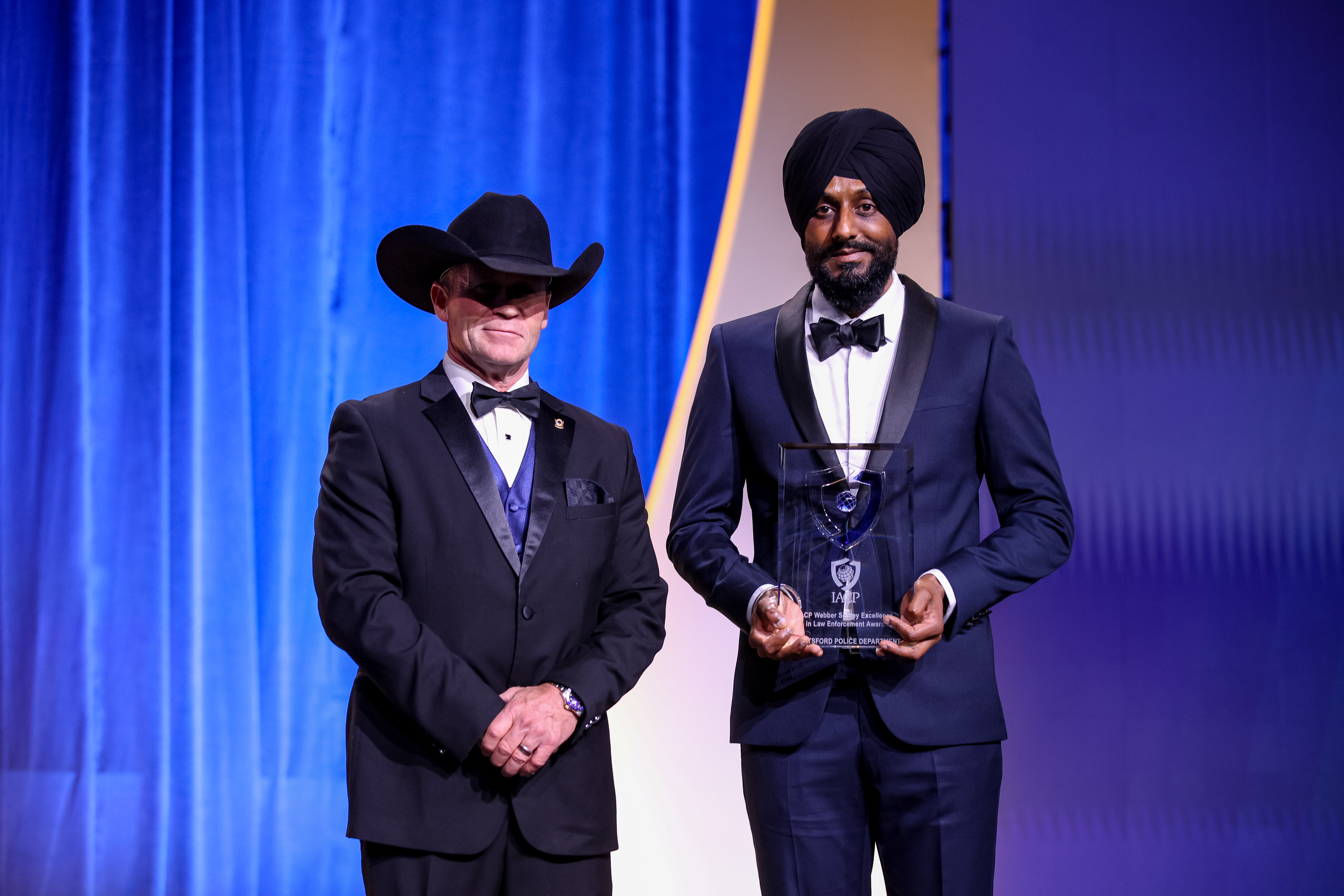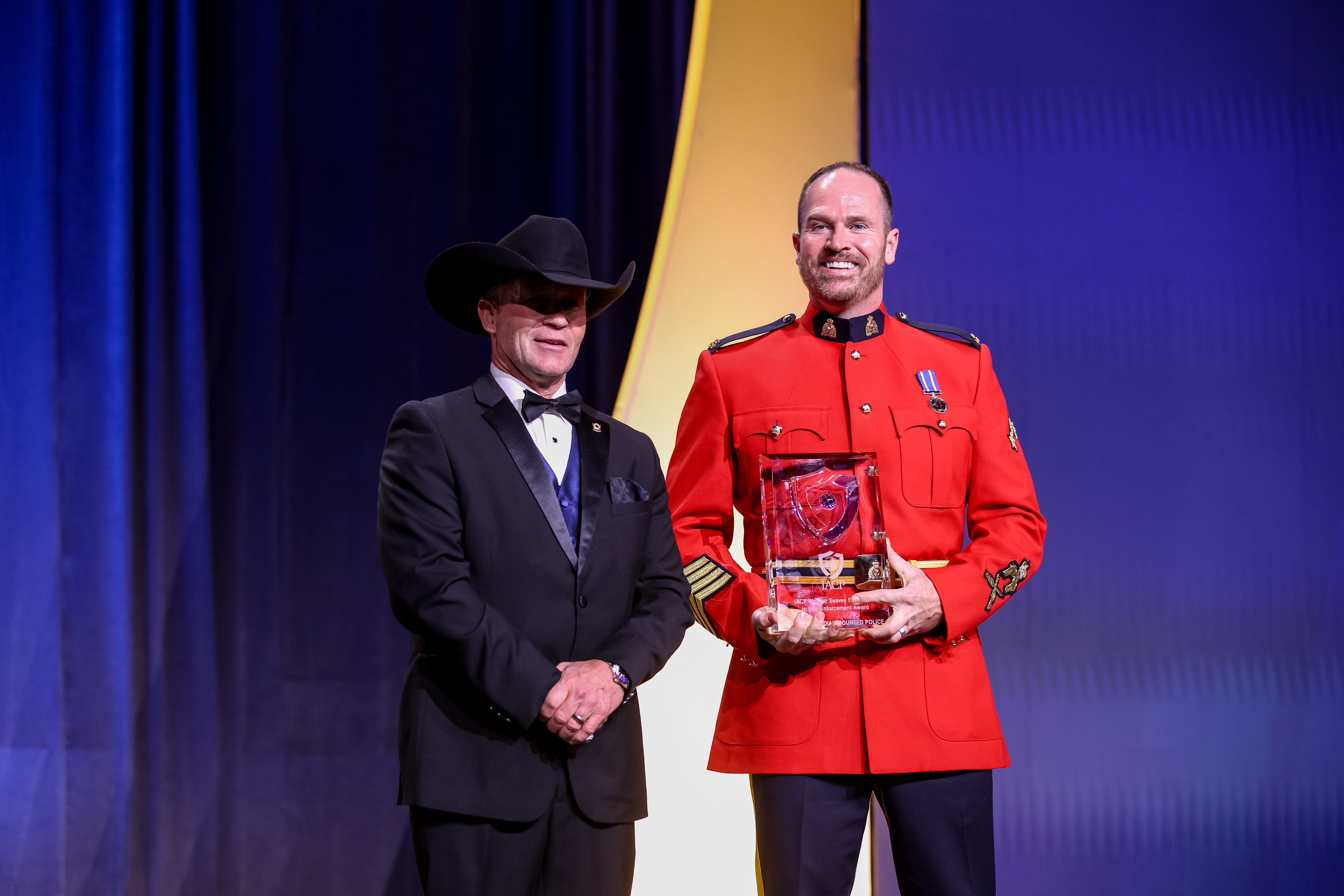IACP Webber Seavey Excellence in Law Enforcement Award
The IACP Webber Seavey Excellence in Law Enforcement Award has been established to recognize a standard of excellence that exemplifies law enforcement’s contribution and dedication to the quality of life in our communities.
The 2024 award nomination period is now closed. Complete the 2025 Awards Interest Form to receive information as it becomes available.
The Webber Seavey Excellence in Law Enforcement Award recognizes tried and true solutions to a variety of problems that law enforcement officers face daily on the ground. More than just simply recognizing the winners, the award helps promote and share these approaches with the entire law enforcement profession. These innovative programs serve as a blueprint to help others develop and strengthen their agencies to make their communities safer.
Mission Statement
Fundamental Objective
To raise the quality and effectiveness of law enforcement.
Introduction
In 1893 Webber S. Seavey, Police Chief from Omaha, Nebraska, became the very first president of the National Chiefs of Police Union – now known as the International Association of Chiefs of Police. He quickly became renown for his ability to not only identify common police problems, but to institute practical solutions that set an example for police agencies far and wide. It is this ground-breaking legacy for which the Webber Seavey Award has been respectfully named.
The Webber Seavey Award bears significance that extends far beyond the prestige of winning. The program is designed to raise the standard of quality in law enforcement, to share information on successful police projects, and thirdly, to bring team members within law enforcement agencies together in an interactive problem-solving process. Winning projects will be documented and made available to agencies worldwide through a series of special publications - promoting the exchange of ideas and the sharing of information throughout the entire law enforcement community. Consider the program your point of access to an IACP archive of law enforcement projects and processes that work.
Program Goals
Each year, law enforcement agencies of all sizes worldwide can compete for the Webber Seavey Award by implementing innovative law enforcement projects within their agencies and communities. All projects for consideration should focus on the achievement of one or more of the following award goals:
- Continual improvement of services to the community
- Strengthening of police relations and promotion of community participation
- Effective use of resources
- Enhancement of communications within and cooperation among agencies
- Development of creative and innovative approaches that promote quality and excellence in law enforcement
Award Criteria
General Eligibility
The Webber Seavey Award is open to all law enforcement agencies worldwide with the exception of private corporations or individuals. Agencies both large and small have an equal chance of winning; it’s how well you work with your available resources that counts. Agencies can submit multiple applications for multiple projects. Every award submission will undergo peer review by special award panels of law enforcement professionals. Annually, a maximum of three awards will be presented.
General Restrictions
Local Approval: Local approval to enter the award program must be granted by the senior-ranking officer of each agency. Generally, this official is the Chief of Police of a city or municipality, the Sheriff of a county, parish or borough, or the Director of Law Enforcement of a state or province.
Winners' Eligibility to Compete Again for the Award
If an agency wins the Webber Seavey Award for Quality in Law Enforcement, it is not eligible to compete again for three years. Finalists and semifinalists are permitted to compete again each year.
The IACP encourages representative of winning agencies to volunteer to take part in the judging process during the years that they cannot compete.
For more information, please contact [email protected]
2024 Winners
Abbotsford Police Department, British Columbia, Canada

The Abbotsford Police Department’s PATHWAYS program was designed to prevent at-risk youths and young adults from gang participation. The program uses an evidence-informed approach and is based on academic research. Research is important to ensure that the program’s strategy is informed by the best available knowledge and to form effective solutions.
The program has supported 61 at-risk youths and young adults and their families with interventions lasting more than two years. Some of these at-risk youths were associated with gang-entrenched individuals. Various factors affect the intervention timeline and/or successes; Abbotsford Police Department considers these factors and the nuances of each case when customizing an intervention plan.
Since the program’s development, Abbotsford has had a drastic decline in the number of gang-related homicides: experiencing only one in 2020, and one in 2024, both related to past conflicts.
Royal Canadian Mounted Police, Canada

The National Reintegration Program (NRP) was established in 2021 as an initiative of the Royal Canadian Mounted Police (RCMP) Employee Well-being Strategy 2021–2024. This officer-led, peer-driven program is dedicated to ensuring officers are comfortable and confident returning to full operational duties after being involved in a traumatic or critical incident, transitioning from administrative duties, or returning from extended leave (parental, suspension, physical or psychological injury, etc.). Since its inception, the NRP has emerged as a standard of support for officers.
Reintegrations are tailored to each officer and take place in a controlled environment at an officer-determined pace. The NRP has received overwhelmingly positive feedback; based on survey responses from 189 reintegration participants, the program yielded a 99% approval rating. It serves to complement other RCMP well-being programs and services, including peer support programs, the Occupational Health Team, and the Employee Assistance Program.
From 2021 to 2023, referrals to the program increased by 270%. A study by the University of Alberta’s Heroes in Mind Advocacy Research Consortium found that participants conveyed that the program assisted in their workplace reintegration and was a welcome component of their recovery journey.
